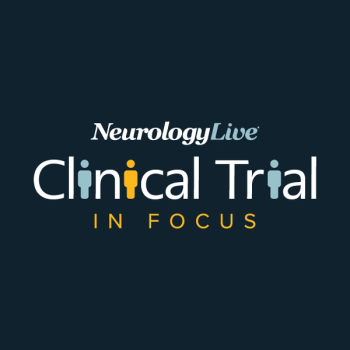
Dementia and Alzheimer Disease
Latest News


Glutaminyl Inhibitor Varoglutamstat Fails to Show Efficacy in Phase 2 VIVA-MIND Study of Early Alzheimer Disease
Latest Videos

CME Content
More News

At AAIC 2025, the chief medical officer at CND Life Sciences discussed recent progress in detecting neurodegenerative diseases earlier using tools like the Syn-One Test. [WATCH TIME: 3 minutes]

Although the FDA-approved therapies lecanemab and donanemab both slow progression in early Alzheimer disease, a new study presented at AAIC 2025 highlighted differences in their safety profiles.

New research revealed that structured lifestyle programs could significantly enhance cognitive function in older adults at risk of decline, outperforming self-guided interventions.

In a new study presented at AAIC 2025, findings showed that walking significantly slowed cognitive decline in APOE ε4 carriers, especially among Black and White women.

A new study presented at AAIC 2025 suggested that combination therapy with cardiovascular medications was associated with slower cognitive decline in older adults.

Test your neurology knowledge with NeurologyLive®'s weekly quiz series, featuring questions on a variety of clinical and historical neurology topics. This week's topic is on multiple sclerosis diets.

Take 5 minutes to catch up on NeurologyLive®'s highlights from the week ending July 25, 2025.

The AHEAD 3-45 Study is currently assessing lecanemab asymptomatic stage of Alzheimer disease to assess whether the therapy can slow biomarker changes or cognitive decline at the earliest phases.

Mind Moments®, a podcast from NeurologyLive®, brings you an exclusive interview with John Sims, MD. [LISTEN TIME: 17 minutes]

Neurology experts anticipate groundbreaking clinical trial results in 2025, potentially transforming treatment strategies for various neurological conditions.

Findings show that apathy affects more than half of individuals with LBD, challenging assumptions that it emerges only in later stages and underscoring the need for targeted screening tools and intervention strategies.

The head of medical development for donanemab at Eli Lilly and Company explained how donanemab’s modified titration dosing regimen could reduce ARIA risk and improve clinical decision-making following the drug’s FDA label update. [WATCH TIME: 3 minutes]

The head of medical development for donanemab at Eli Lilly and Company provided insights on the structure of TRAILBLAZER-ALZ 6, a study comparing numerous different dosing regimens of donanemab. [WATCH TIME: 3 minutes]

Test your neurology knowledge with NeurologyLive®'s weekly quiz series, featuring questions on a variety of clinical and historical neurology topics. This week's topic is on progressive multiple sclerosis.

The associate professor of neurology at Johns Hopkins detailed how artificial intelligence is shaping the future of neurology through its integration in clinical care, research, and medical education. [WATCH TIME: 4 minutes]

Neurology News Network. for the week ending July 19, 2025. [WATCH TIME: 4 minutes]

Elisabeth Marsh, MD, an associate professor of neurology at Johns Hopkins, shared her insights on the emerging role of AI in clinical practice and neurologic education, ahead of her session at the 2025 ANA/AUPN Annual Meetings.

Andrew Varga, MD, PhD, associate professor of medicine at the Icahn School of Medicine at Mount Sinai, provided comment on a featured debate at the 2025 SLEEP Annual Meeting exploring the evolving science behind glymphatic clearance and its potential link to Alzheimer disease.

Nuri Jacoby, MD, neurologist at Maimonides Medical Center and SUNY Downstate, previewed a hands-on session at the upcoming AUP Annual Meeting exploring how simulations can teach communication, professionalism, and feedback skills in neurology training.

A recent study highlighted key unmet needs and barriers that may lead to preventable nursing home placements among Black, Hispanic/Latino, and White patients living with dementia.

INmune Bio's XPro shows promise as a treatment for patients with Alzheimer disease, revealing cognitive benefits despite mixed phase 2 trial results.

Test your neurology knowledge with NeurologyLive®'s weekly quiz series, featuring questions on a variety of clinical and historical neurology topics. This week's topic is on the Alzheimer's Association International Conference.

Take 5 minutes to catch up on NeurologyLive®'s highlights from the week ending July 11, 2025.

A recent study confirmed ambroxol's safety in Parkinson disease dementia, showing stabilization of neuropsychiatric symptoms but no cognitive improvement.

The updated donanemab dosing schedule is aimed at reducing ARIA risk while maintaining efficacy in early Alzheimer treatment to enhance patient safety.
















